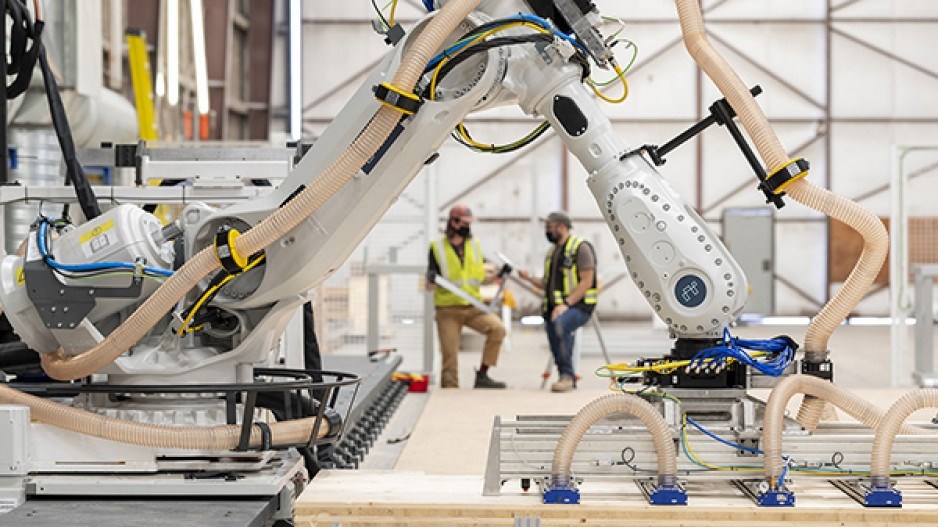Robots are not taking to B.C. construction sites to build the next generation of homes. At least not yet.
But if one hears from a friend that robotic arms played a big part in the building of their humble abode, it may be closer to fact than fiction in the coming years.
“There’s just really no innovation in the construction sector for the better part of 75 years,” says Oliver Lang, founder and CEO of Vancouver-based Intelligent City Inc.
While advances in telecom have seen communications do away with rotary phones in favour of smartphones, no such analogue exists in the construction industry over that same period. In the meantime, climate change, housing affordability and housing supply have been heightening British Columbians’ anxiety levels.
“We’re trying to tackle all of these things at once and ask ourselves the question: Can we use technology to overcome these hurdles?” Lang told BIV.
His construction firm has embarked on answering that question by tapping robotics to assemble mass timber buildings geared towards mid-to-high-rise homes and offices.
Intelligent City’s first factory, based in North Delta, officially opened its doors October 14, paving the way for what Lang describes as a more sustainable, efficient and less costly way of pursuing home construction.
“There’s a lot of waste in construction right now. There’s a waste in materials, there’s a waste of time,” Lang said, adding people wouldn’t accept if their phones or furniture was manufactured in the sometimes-impromptu way the construction sector may fall back on.
The company’s proprietary software is integrated with its design and manufacturing systems.
Developers submit a questionnaire about what they want from the building, while the software takes into consideration local building codes and regulations. A digital twin is constructed, which vendors in the building’s supply chain can review to ensure change orders don’t plague the project.
Depending on the municipality, the entire design process may take around three months for a typical building. Intelligent City’s robotic arms are then put to work at the plant, constructing the building’s superstructure and exterior envelope enclosure to be delivered to the construction site.
“The industry applies essentially a service and labour to a commodity,” said Lang. “We picked a completely different approach. We take a product- and platform-based approach, where all our components are tested, fully understood.”
Prior to 2019, building codes prevented the construction of buildings with a timber frame taller than six storeys. The only exception was the Brock Commons residential tower at the University of B.C., completed in 2017 and built as a demonstration project for mass timber buildings.
Mass timber buildings in B.C. are now permitted to go as high as 12 storeys following the introduction of the province’s Tall Wood Initiative in 2019.
“We can't just apply this in B.C.,” Lang said, referring to Intelligent City’s business model.
“Our technology really needs to be scalable into other markets as well. So now we have adoption of that mass timber code in Alberta. In Quebec, it's being adopted. We assume it will be done by the end of this year in Ontario … In Washington, Oregon and California, there we can even go with our systems 18-storeys tall because they've adopted the International Building Code."
Intelligent City’s first project is expected to be deployed in Vancouver next year.




